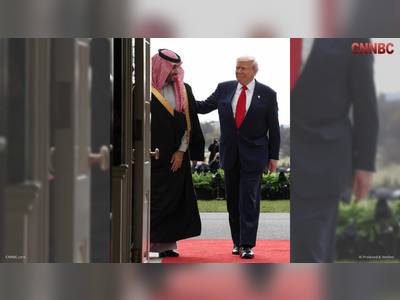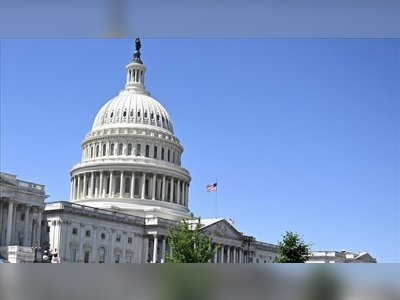
Trump’s “DOGE” Efficiency Agency Quietly Disbanded Ahead of Schedule
The Department of Government Efficiency, once led by Elon Musk, has been declared defunct with its functions absorbed before its July 2026 end date.
In a quietly acknowledged move, the Department of Government Efficiency (DOGE) – the sweeping federal agency launched by President Donald Trump and initially overseen by Elon Musk – has effectively been dismantled.
The agency, created in January 2025 as the centrepiece of a government-wide cost-cutting initiative, was scheduled to operate until July of 2026.
But as of late November, Office of Personnel Management Director Scott Kupor confirmed DOCGE “doesn’t exist” as a central body, and its activities have largely been transferred to the OPM.
The initiative had been introduced with great fanfare as part of Trump’s agenda to reduce waste, streamline bureaucracy and redirect resources toward priority programmes.
Musk appeared publicly using a power saw symbolically labelled “against bureaucracy,” while Trump and Cabinet members routinely highlighted the agency’s role in rapid federal reform.
Yet despite bold public messaging, the results remained opaque.
DOGE claimed to have cut tens of billions of dollars in spending, but no full public accounting was produced.
Sources say that Musk’s relationship with the administration fractured by May 2025, leading to his departure and leaving the initiative without its original figurehead.
Many senior staff moved on to other posts: document-reviews show former DOGE personnel joining roles at the National Design Studio, the Department of Health and Human Services and the Office of Naval Research.
The overall hiring freeze and reductions in federal workforce initiatives – once hallmarks of DOGE – have since been abandoned.
From the inside, officials describe an agency that once sought sweeping authority over federal data systems and staffing decisions, but which faltered amid legal challenges, internal resistance and questions over legitimacy and effectiveness.
While the Trump administration maintains its broader goals of government efficiency remain in place, the abrupt end of DOGE signals a recalibration of how radical structural reform will be executed.
The story raises broader questions about how pitched reforms are managed in modern government, how accountability is maintained, and whether major institutional change must be sustained with transparency to deliver results.
The agency, created in January 2025 as the centrepiece of a government-wide cost-cutting initiative, was scheduled to operate until July of 2026.
But as of late November, Office of Personnel Management Director Scott Kupor confirmed DOCGE “doesn’t exist” as a central body, and its activities have largely been transferred to the OPM.
The initiative had been introduced with great fanfare as part of Trump’s agenda to reduce waste, streamline bureaucracy and redirect resources toward priority programmes.
Musk appeared publicly using a power saw symbolically labelled “against bureaucracy,” while Trump and Cabinet members routinely highlighted the agency’s role in rapid federal reform.
Yet despite bold public messaging, the results remained opaque.
DOGE claimed to have cut tens of billions of dollars in spending, but no full public accounting was produced.
Sources say that Musk’s relationship with the administration fractured by May 2025, leading to his departure and leaving the initiative without its original figurehead.
Many senior staff moved on to other posts: document-reviews show former DOGE personnel joining roles at the National Design Studio, the Department of Health and Human Services and the Office of Naval Research.
The overall hiring freeze and reductions in federal workforce initiatives – once hallmarks of DOGE – have since been abandoned.
From the inside, officials describe an agency that once sought sweeping authority over federal data systems and staffing decisions, but which faltered amid legal challenges, internal resistance and questions over legitimacy and effectiveness.
While the Trump administration maintains its broader goals of government efficiency remain in place, the abrupt end of DOGE signals a recalibration of how radical structural reform will be executed.
The story raises broader questions about how pitched reforms are managed in modern government, how accountability is maintained, and whether major institutional change must be sustained with transparency to deliver results.











